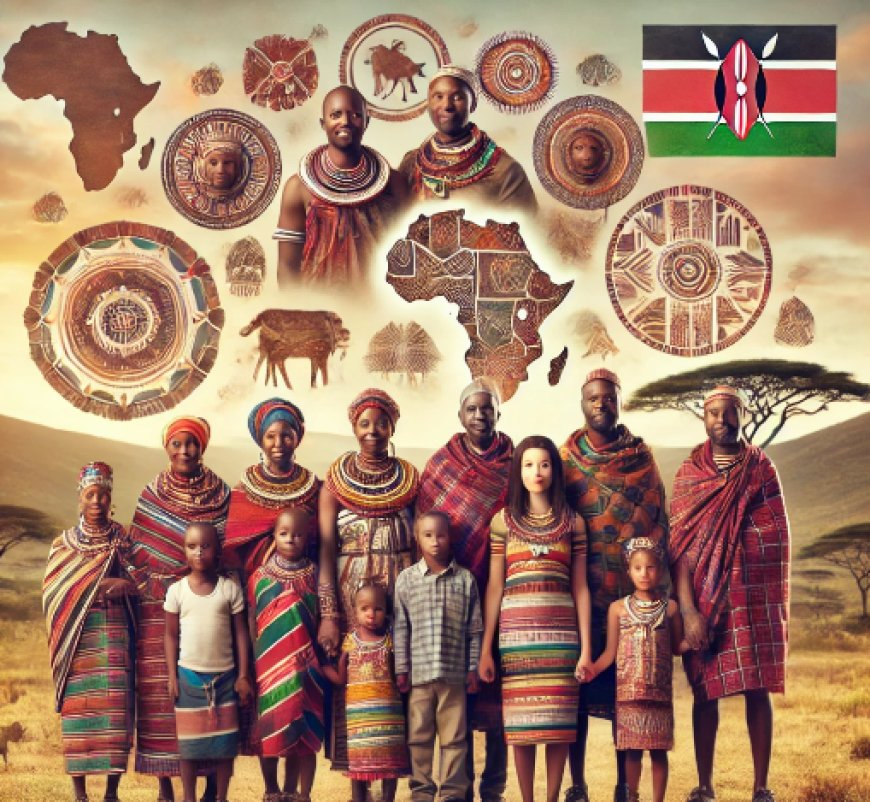The practice of marrying in different tribes in Kenya has been on the rise in the recent past. With the intermingling of cultures, there are families that are produced which gives birth to children with different characteristics, abilities and even intelligence. The notion that intermarriage results in the production of brighter and more adaptable children is not new, but which Kenyan tribes are the best to intermarry with in order to produce a strong intelligent progeny? Furthermore, are there tribes in Kenya that, because of culture, cannot marry each other?
In this article, we will try to answer these questions in detail, give recommendations on which tribes are better to intermarry with, whether it is possible to raise intelligent children, and what cultural factors can either allow or prevent tribes from intermarrying..
The Concept of "Intelligence" in Intermarriage
However, it is necessary to note that intelligence is a complex trait that depends on multiple factors, including genetic and environmental ones, before turning to the tribes themselves. Although intelligence is inherited from both parents, it is also influenced by education, cultural background, and family environment. Interracial marriage between two different tribes makes the individual to be more rounded in their thinking, culture and background hence making them more flexible, innovative and effective in solving problems..
1. The Kikuyu Tribe: Ambitious and Business-Oriented
Some of the tribes in Kenya include the Kikuyu, the largest tribe in the country and well known for their business like mentality. They are hard working and highly motivated towards education and money, which in turn, the children are raised with good working ethic and good grades. From the experience of the Kikuyu, children who are born from such a union will be endowed with a balance between school achievements and life skills that are so essential in today’s world..
2. The Luo Tribe: Intellectuals and Scholars
Another large tribe is the Luo which is associated with education and political power. The Luos are well known to be intelligent in school education and this tribe has been known to produce some of the most intelligent scholars and leaders in Kenya. In case you want to have children who are inclined towards intellectual issues, marrying a Luo partner is one of the best options you can consider.
In the past the Luo have been noted to be intelligent people who perform exceedingly well in the academic and political realms. It was possible to bear children who are intelligent as the Luo and capable of leadership and other intellectual activities.
3. The Luhya Tribe: Community-Oriented and Resilient
Luhya people value unity, hard work and education as some of the important aspects in their lives. Luhya children are raised with a good sense of the family and how they should be useful members in the society. With this kind of resilience coupled with commitment in education, children can grow to be socially well balanced and academically oriented.
The Luhya tribe also brings up some of the best rounded people, with a strong bond with the community as well as with education, and if the two are to produce offspring, it would bring out the best..
.
4. The Kalenjin Tribe: Athletes and High Performers
While widely known for their world-class athletes, the Kalenjin are also highly respected for their dedication to hard work and self-discipline. These traits make them one of the tribes that produce not only physically capable individuals but also mentally sharp children. Children from Kalenjin-Kikuyu or Kalenjin-Luo unions, for example, might combine intellectual prowess with strong physical health.
.
Tribes That Traditionally Do Not Intermarry
Though intermarriage is becoming more accepted, there are some tribes in Kenya that traditionally avoid it due to cultural or religious reasons. Here’s why some tribes don’t intermarry:
1. The Maasai Tribe: Guardians of Tradition
The Maasai people have strong cultural traditions that discourage intermarriage with other tribes. One key reason is the preservation of their heritage, including language, customs, and practices. The Maasai are deeply protective of their lineage, and intermarrying outside the tribe is often seen as diluting these rich traditions.
While it’s not entirely impossible for Maasai individuals to marry outside their tribe, doing so can sometimes lead to familial and societal disapproval.
2. The Somali Tribe: Faith and Clan Unity
The Somali people, who are predominantly Muslim, often marry within their own tribe or religious community to preserve religious values and clan unity. Intermarrying outside the Somali tribe is rare, and in many cases, discouraged due to religious and cultural beliefs. Maintaining the purity of faith and family honor is often a reason for avoiding marriages with non-Somali tribes.
3. The Swahili Tribe: Cultural and Religious Preservation
The Swahili community, primarily located along Kenya's coast, has a rich history steeped in both African and Arab cultures. They often marry within their community to preserve Islamic customs, traditions, and cultural heritage. Marrying outside the tribe, while not unheard of, is generally frowned upon, especially when it involves non-Muslims.
Conclusion: Finding the Balance in Intermarriage
It could therefore be said that intermarriage in the Kenyan context can be a positive experience as it fuses together different cultures, beliefs and intelligent capital. They are characterized as hard working and very bright, in fact the Kikuyu, Luo and Luhya tribes in particular are known for producing intelligent, hardworking individuals thus making them suitable for raising intelligent children. However, there is a set limit that has been set by different intersexual cultural and religious believes in regard to which particular tribe is fit for marriage. This works by ensuring that they do not intermarry say, the Maasai, Somali or Swahili to eliminate outbreeding pressures.
Finally, those who decide to intermarry should be in love with each other and accept each other’s cultural background as well as future vision. Although some of the tribes in Kenya hold certain taboos regarding inter tribal marriages, the continent has become more liberal on mixed marriage hence meaning that families can rear their children with a culturally diverse an enriched background..








